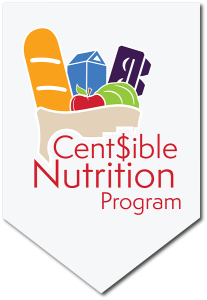To grow a great garden you have to start at the bottom – in the soil to be exact. Vegetables like soils with high levels of organic matter. Organic matter is broken down plant or animal material that improves the quality of the soil. Unfortunately, Wyoming soil doesn’t have much organic matter due to the short growing season and low rainfall. This can lead to problems including gardens not growing well, water not staying in the soil, and the soil becoming compact. Adding organic matter can help.
Below are three options for adding organic material to your garden:
Compost
Compost is yard and kitchen waste (from plants) that has broken down. You can make your own using this guide or purchase it at a garden store. Keep these tips in mind:
- Use only mature compost. Mature compost is compost that has fully broken down.
- Add compost to soil before planting seeds and mix it into the soil to about 6-inches deep.
- Use compost as a mulch. Once it is warm outside, spread a 2-3 inch layer of compost around plants. You may need to add a fertilizer to the soil when doing this.
Lawn Clippings
Lawn clippings, such as cut grass, can be used and added during the growing season. Keep these tips in mind:
- Apply a 1-inch layer between garden rows.
- Let the layer dry before adding more.
- Turn lawn-clipping mulch into the soil at the end of the growing season.
Manure
Manure has been used for thousands of years in gardens, but it can be a little more risky that plant-based compost and lawn clippings. To use manure, add it to the soil then mix it in before planting. Keep these tips in mind:
- Manure must age six months to a year before use or it can burn plants.
- Have a sample tested for salt content.
- Do no use dog, cat, or pig manures on plants you plan to eat as they contain harmful parasites. Manure use is not recommended if you or someone in your family has a compromised immune system.
- If using manure, it’s best to compost it to help remove weed seeds and reduce the risk of disease organisms
Using raised garden beds is another way to deal with poor soil. Beds can be filled with topsoil and decomposed organic material to create a great garden mix. Have questions or looking for a little more guidance? Contact your local UW Extension expert!
Information summarized from UW Extension publications by Katie Shockley, Writer/Editor, University of Wyoming Extension Communications & Technology
To grow a great garden you have to start at the bottom – in the soil to be exact. Vegetables like soils with high levels of organic matter. Organic matter is broken down plant or animal material that improves the quality of the soil. Unfortunately, Wyoming soil doesn’t have much organic matter due to the short growing season and low rainfall. This can lead to problems including gardens not growing well, water not staying in the soil, and the soil becoming compact. Adding organic matter can help.
Below are three options for adding organic material to your garden:
Compost
Compost is yard and kitchen waste (from plants) that has broken down. You can make your own using this guide or purchase it at a garden store. Keep these tips in mind:
- Use only mature compost. Mature compost is compost that has fully broken down.
- Add compost to soil before planting seeds and mix it into the soil to about 6-inches deep.
- Use compost as a mulch. Once it is warm outside, spread a 2-3 inch layer of compost around plants. You may need to add a fertilizer to the soil when doing this.
Lawn Clippings
Lawn clippings, such as cut grass, can be used and added during the growing season. Keep these tips in mind:
- Apply a 1-inch layer between garden rows.
- Let the layer dry before adding more.
- Turn lawn-clipping mulch into the soil at the end of the growing season.
Manure
Manure has been used for thousands of years in gardens, but it can be a little more risky that plant-based compost and lawn clippings. To use manure, add it to the soil then mix it in before planting. Keep these tips in mind:
- Manure must age six months to a year before use or it can burn plants.
- Have a sample tested for salt content.
- Do no use dog, cat, or pig manures on plants you plan to eat as they contain harmful parasites. Manure use is not recommended if you or someone in your family has a compromised immune system.
- If using manure, it’s best to compost it to help remove weed seeds and reduce the risk of disease organisms
Using raised garden beds is another way to deal with poor soil. Beds can be filled with topsoil and decomposed organic material to create a great garden mix. Have questions or looking for a little more guidance? Contact your local UW Extension expert!
Information summarized from UW Extension publications by Katie Shockley, Writer/Editor, University of Wyoming Extension Communications & Technology
Additional Resources
Creating your own organic material and adding it to your garden is a bit of an art and a bit of a science too. Check out these resources to guide you.
- Soil Amendments video
- Compost videos
- Backyard Composting guide
- Fixing What Ails Your Soil article


